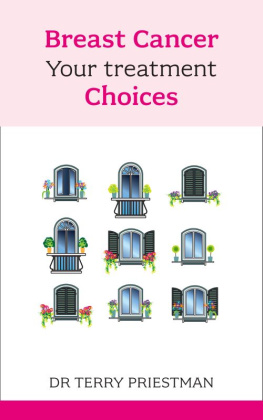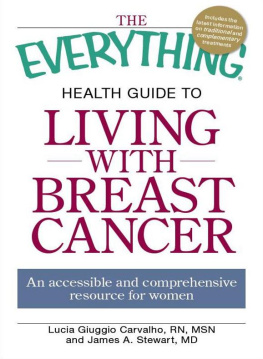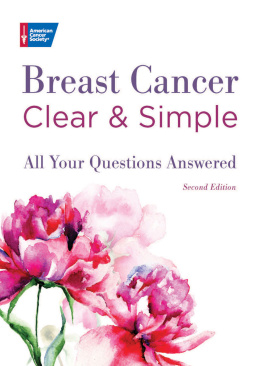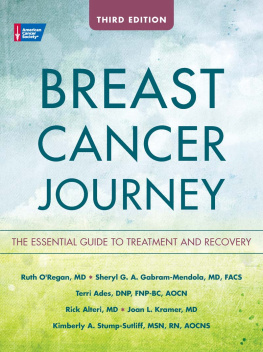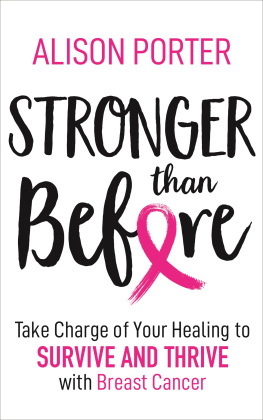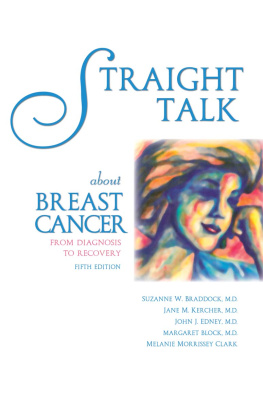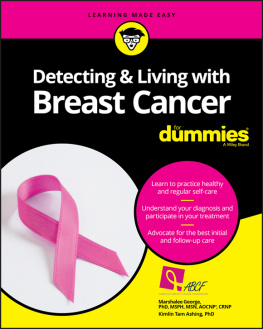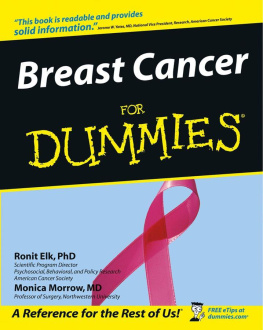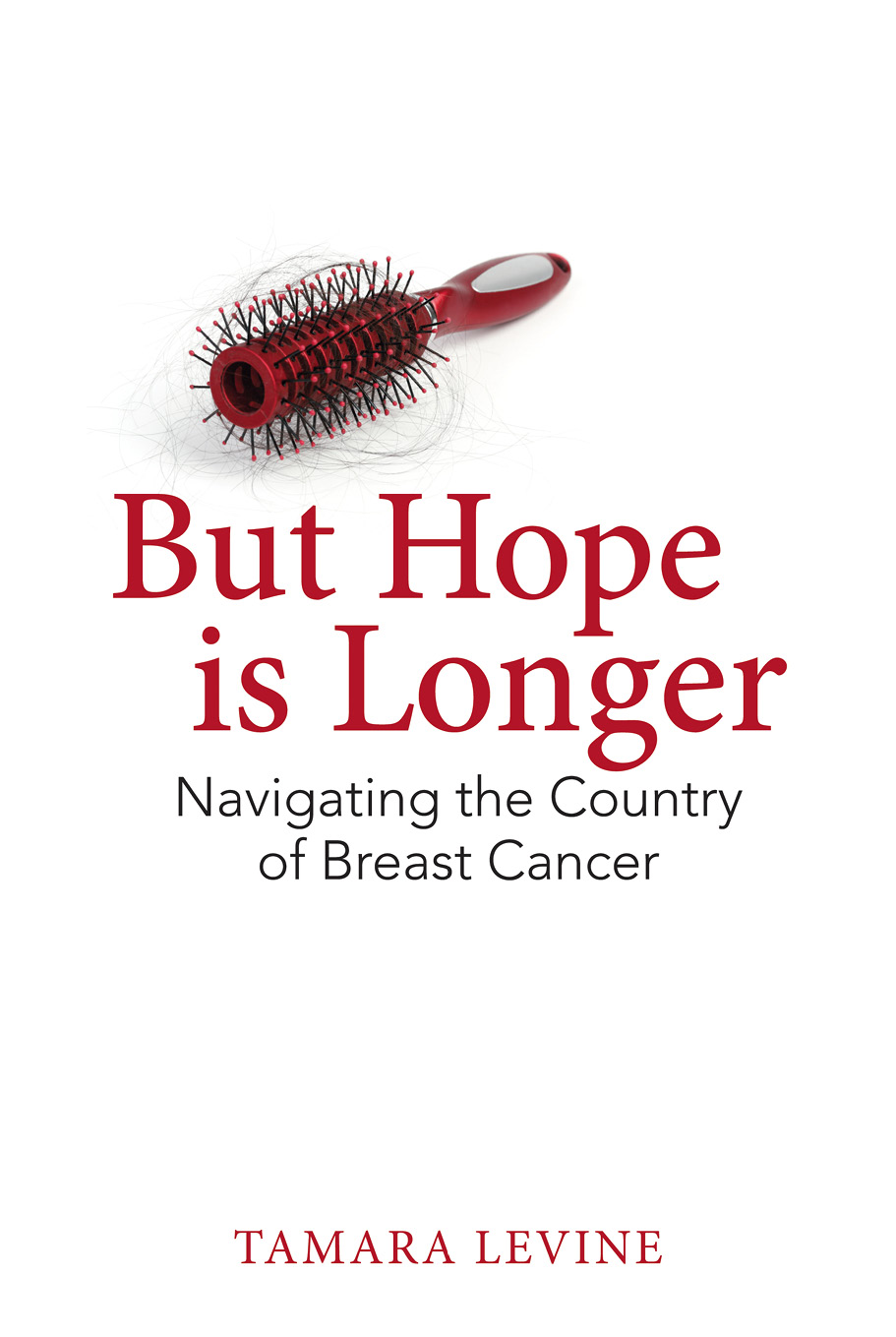
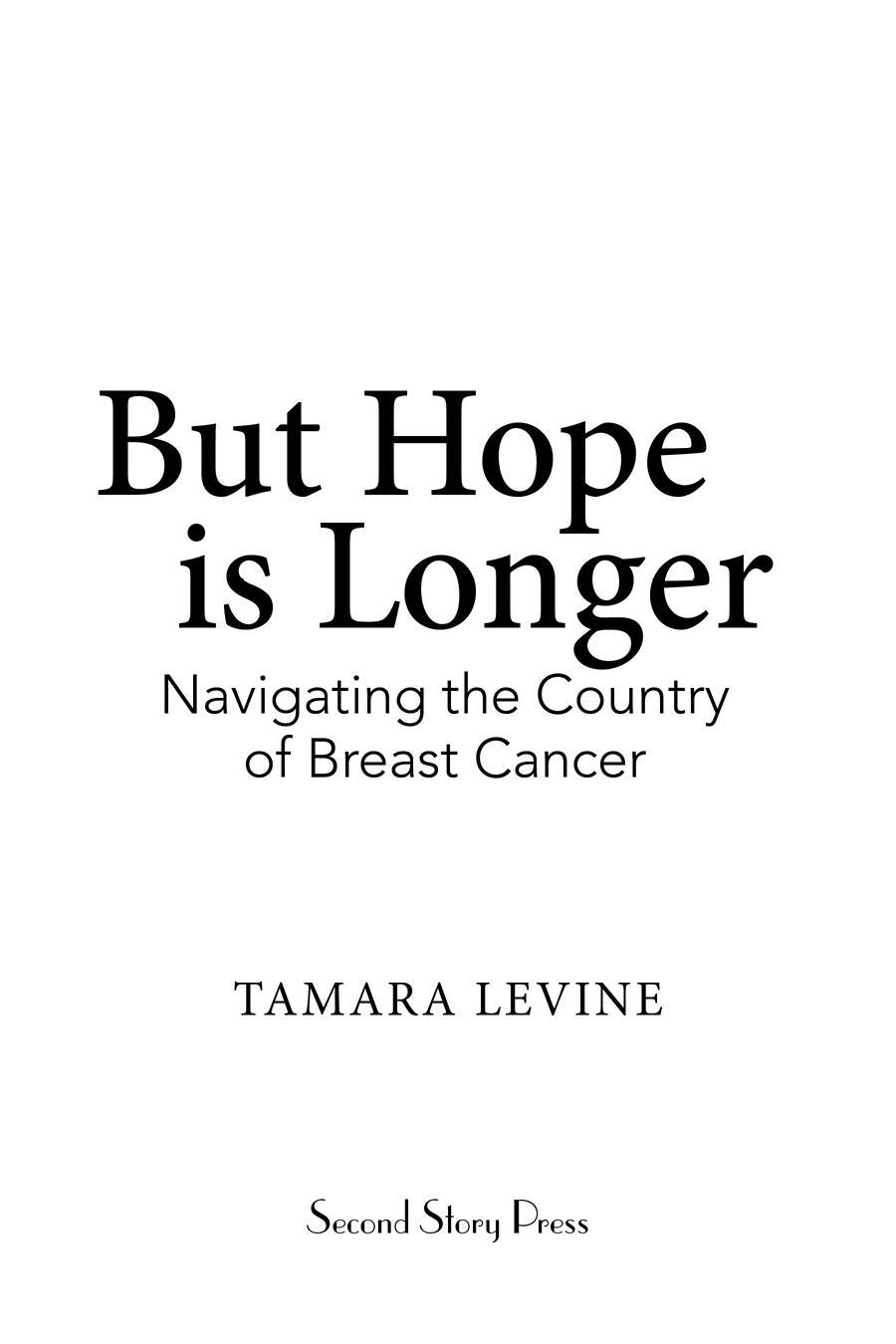
Library and Archives Canada Cataloguing in Publication
Levine, R. Tamara
But hope is longer [electronic resource] : navigating the country of breast cancer / R. Tamara Levine.
Electronic monograph in EPUB format.
Issued also in print format.
ISBN 978-1-926920-90-0
1. Levine, R. TamaraHealth. 2. BreastCancerPatientsBiography.
I. Title.
RC280.B8L48 2012 362.196994490092 C2012-904032-0
Copyright 2012 by Tamara Levine
Editors: Sarah Swartz, Ruth Chernia
Designer: Melissa Kaita
Cover photo iStockphoto
Second Story Press gratefully acknowledges the support of the Ontario Arts Council and the Canada Council for the Arts for our publishing program. We acknowledge the financial support of the Government of Canada through the Canada Book Fund.
Published by Second Story Press
20 Maud Street, Suite 401
Toronto, ON M5V 2M5
www.secondstorypress.ca


To my parents,
Helen Zivian Levine and Gil Levine
Introduction
I was in the throes of despair when I wrote the first of my Dear friends and family letters on August 26, 2009, a few weeks after being diagnosed with Stage III breast cancer. Id had a clear mammogram ten months before finding the lump. How could my healthy and resilient body have suddenly become so sick?
I struggled to get my head around believing I had cancer as I groped my way through the cancer care system. Discouraged and frustrated, I kept hitting the wall as I tried to come up with a treatment plan that made sense for me. Whatever the plan turned out to be, I knew Id have to brace myself for the assault that cancer treatment would imminently inflict on my body.
I also had to face the possibility that I might not make it. What about my family? What would having a sick mother/daughter/wife do to my young adult kids? To my husband? To my elderly parents? What would it be like to be sick at home full-time after decades in the workforce?
My first letter was a way to let my world know what was happening to me, to get back to the people from various parts of my life who had phoned, e-mailed, and sent cards, flowers, and food since hearing my news. In that letter I wrote about fearing both the cancer and the horrors of the treatment that await me. While I couldnt have articulated it at the time, I was also preparing to immerse myself in what I would come to call the paradoxes of cancer.
The responses to my first letter were overwhelming. I hadnt imagined that some recipients would in turn pass my letter on to others, so I was bowled over by how far and wide it soon traveled. The messages that flowed in expressed shock and outrage, love and solidarity. They helped quell some of my fears about being left behind or forgotten as I prepared to drop out of my life as I had known it. While I felt more alone than I had ever been, it gave me some measure of comfort to know there were people out there rooting for me. What astonished me wasnt just the warmth expressed and the support offered, but how my letter seemed to have touched peoples lives. The responses, as well as what was becoming my own burgeoning need to write, convinced me to carry on with the letters.
I had written on the job and penned letters, poems, and new lyrics to old tunes all my life, but now, for the first time, my writing was becoming intensely personal. There was no so-called objectivity or distance from what I was living at any given moment. I discovered that when I wrote from inside my experience, the letters resonated with readers in unexpected ways. I also came to realize that the writing itself was a kind of therapy that it could transport me to a place of healing like almost nothing else.
I carried on with what I came to call my Healing Journey letters over the next sixteen months. I wrote through feeling rotten and less rotten, through fear, vulnerability, infirmity, visual impairment, despair, and hope. The letters became much more than a way to share news of what was happening to me. They became, in effect, my work.
My letters became a chronicle of my seeing things in new ways. In the first letter, I wrote about feeling as though I had entered a country which no one wants to visit, where a language is spoken that is vaguely familiar yet distant until now. I didnt know then that Susan Sontag had written about the idea of dual citizenship in her essay Illness as Metaphor in 1977:
Illness is the night-side of life, a more onerous citizenship. Everyone who is born holds dual citizenship, in the kingdom of the well and the kingdom of the sick. Although we all prefer to use only the good passport, sooner or later each of us is obliged, at least for a spell, to identify ourselves as citizens of that other place.
The idea of being transported to a new country, of being an unwilling (and unwitting) immigrant or even a deportee became a recurring theme. Although we are surrounded by people who are going through, have been through, or have been lost to cancer and we hear about it regularly, it was completely different when cancer struck me . In an instant I was uprooted from all that was familiar and dropped into a strange, inhospitable, and dangerous land. The language of the new country had words with a familiar ring: tumor, malignancy, carcinogen, metastasis, chemotherapy. While I had a cursory, even detached notion of these words, each term took on a dreaded new and deeper meaning when it suddenly applied to my body and my life.
Once I had crossed the border from the land of the healthy into this new country, I couldnt help but notice the faces, bodies, and dress of its inhabitants. The scene was shocking to me, not because I hadnt seen people with cancer before, but because now they/we were gathered together as a collectivity, even a culture in the anthropological sense. As I looked around me, I wondered: are these my people now?
I was already marked, of course, but not yet visibly so. In those early days, I could still pass as a tourist and even return incognito to the world of the seemingly healthy. I still had my hair. My skin still had decent color, I had good energy and was feeling limber. But I knew it wouldnt be long before I would cross over and take on the pallor, dress, and gait of this new place.
Soon after my diagnosis, I went on sick leave and later on long-term disability. My work had been rewarding, intense, and demanding. Leaving it because of cancer was difficult: who would finish the course I was writing? Who would I be without my work-defined identity? What would happen to my relationships with colleagues and work-connected friends across the country? How would I now spend my time?
Almost overnight, my job became to get well. It was nothing short of a full-time job to get to all the appointments for tests and treatments. I spent vast amounts of time just waiting in doctors offices and hospital waiting rooms, where I came to understand the meaning of patient in new ways. When I wasnt feeling horrible, I also saw my job as trying to keep my body as strong as possible. In a modified way, I tried to carry on with my fitness routines when I could.
Throughout treatment and beyond, with some serious bumps along the way, I was fortunate to have doctors who were not only at the top of their science but who were also warm, caring, and compassionate human beings. The team came together in part because of luck and circumstance. But it was also because of my efforts to be captain of my own ship, as I was determined to find the best practitioners I could within both mainstream and complementary medicine. I was grateful to be able to form relationships with each of them over time that allowed us to explore aspects of life that went beyond regular check-ups and consultations.


